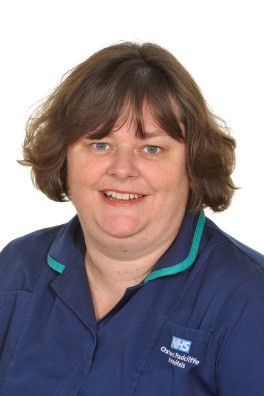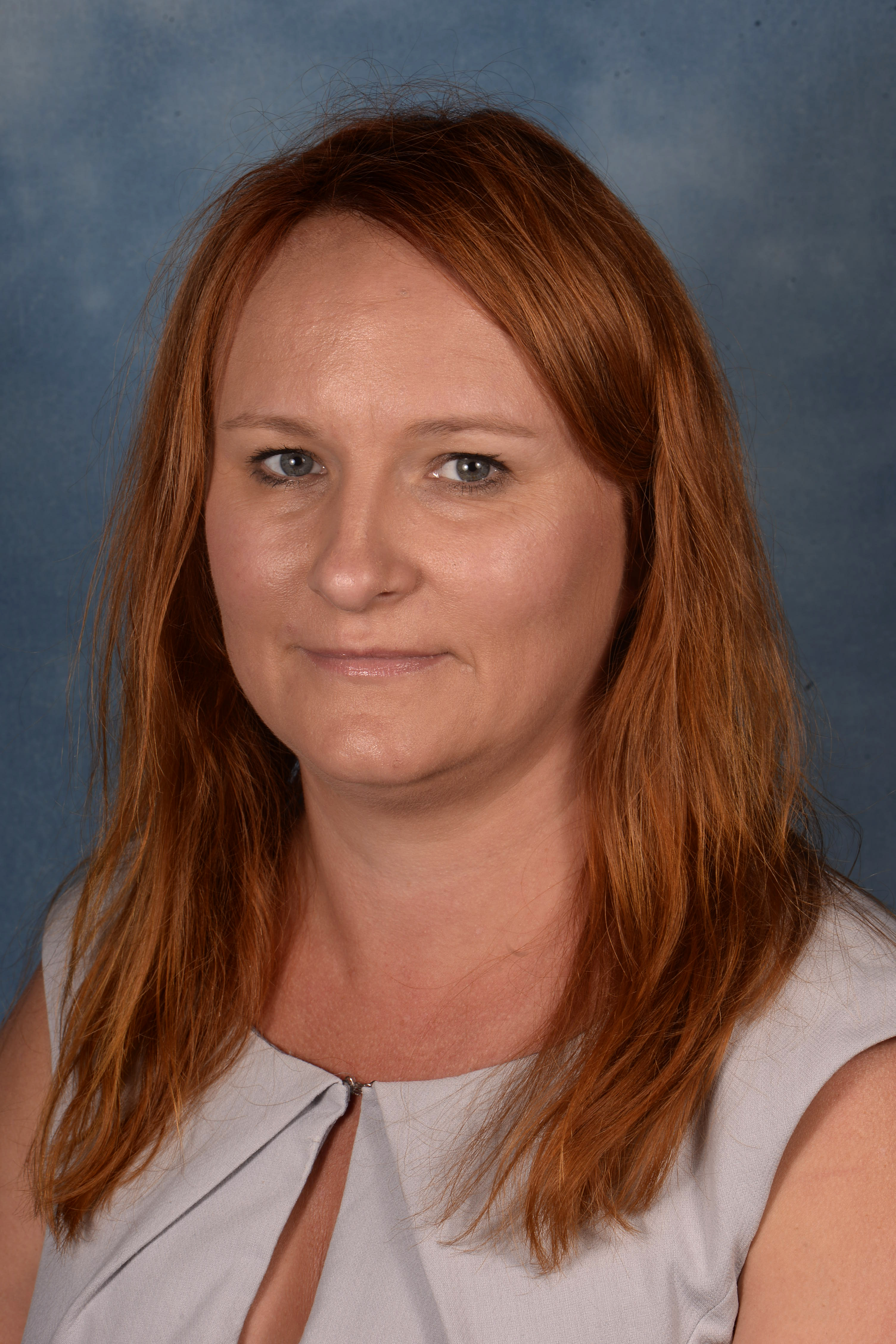Adopting innovation and managing change in healthcare settings
A taught programme of practical skills for staff delivering care, NHS managers, partners and commissioners
More than 300 people have taken part in this Masters-level programme since its launch in 2016. Funding has been secured until 2022 from Health Education England. The next cohort starts in October 2022.
Advancing technologies, increasing demand and more recently the dramatic impact of Covid-19 mean that all NHS staff are having to adapt their practice and develop their services to maintain and improve patient outcomes within constrained resources. All of us working within the NHS have experienced recent and rapid change in service delivery. Many have really good ideas or have read or heard about good ideas being used elsewhere which have the potential to transform our services locally, however, there are often considerable challenges to local implementation.
Experience and expertise within the Oxford AHSN has highlighted some of the key barriers:
- The role of evidence as proof of effectiveness.
- A lack of self-confidence in the skills needed to be successful.
- The support needed for change both inside and outside of the organisation.
- The importance of gaining support from the executive team as well as senior management and clinical colleagues.
The Oxford AHSN is working with Bucks New University to deliver a course that provides students with a set of tools, skills, knowledge and understanding designed to clarify the route through to successful implementation of innovation and change, building students’ confidence and organisational effectiveness.
Most importantly, innovating and managing change must be interesting and stimulating and as previous students testify (see below), this programme achieves that.
- Entry requirements: a BSc (Hons) / BA (Hons) or equivalent academic qualification.
- Students lacking the entry requirement but with substantial work experience in a health and/or social care setting are eligible to apply and their application will be considered on an individual basis.
- Each module is accredited with 30 level 7 (Masters level) credits.
- Award: Students are enrolled as affiliate students on the MSc Professional Practice. On completion of both modules they will be awarded 60 level 7 (Masters level) credits, these can be used towards gaining a Masters degree at Buckinghamshire New University or an equivalent Masters in another University willing to accept the credits via their Accreditation of Prior Learning (APL) process. The credits can be recorded on your CV.
- Oxford AHSN Innovation Programme video
- Module 1: Introduction to clinical innovation in healthcare practice
- Module 2: Delivering and sustaining improvement in healthcare settings
- Studying ‘Adopting innovation and managing change in healthcare settings programme’ at Buckinghamshire New University
- FAQs
- Related Content
- Contact Details
How to apply
Application for the October cohort is now open. For further information about the programme and how to apply please email: [email protected]
Watch our video below for more information about the programme including details of module content – further down this page you can also read feedback from people who have completed it.
Module 1: Introduction to clinical innovation in healthcare practice
The module runs for six days over four months. As a result of the pandemic all teaching will be undertaken remotely. Students will be able to login to teaching sessions on the study days to take part in group discussions and Q&A’s with lecturers. The course gives students the opportunity to find out about innovation and develop change management skills – questions addressed include:
- What is innovation, what’s out there and available?
- How do I know whether it’s good?
- How does industry and the NHS create innovation for the NHS?
- How do I plan for innovation and change?
- How do I involve colleagues in innovation and change?
- How do I involve external organisations in innovation and change?
- How do I get senior managers and executive support for innovation and change?
- What do I need to do to successfully make the change happen?
Project Proposal:
To help with learning students will be asked to work with their colleagues to identify an area of practice or service that:
- is or has recently undergone rapid change;
- is at risk of being neglected as other practices/services prioritised;
- could be improved or is thought to require change;
students will be asked to identify a practice or service that meets one or more of the above criteria and to scope solutions that were or could be adopted to address the issue.
Many students are already undertaking change management and innovation projects on behalf of their organisation or supporting innovation and change programmes in their workplace and find the course provides them with skills and support required to undertake their role with confidence.
Sessions include:
- Visiting and hearing from leading health innovators.
- Hearing from colleagues who have been successful in implementing innovations in their organisation.
- Reviewing the evidence base.
- Scoping solutions.
- Building and writing a business case.
- Involving patients and the public in innovation and change.
- Measuring change.
- Measuring and appraising the value of the innovation to the organisation.
- Understanding sustainability.
Areas covered in this module include:
- Getting started – defining the issue and knowing the impact of solutions.
- Answering the “so what question?”
- What are we measuring and how?
- How will we measure and evaluate?
- Ready to Implement!
Module 2: Delivering and sustaining improvement in healthcare settings
The module runs for six days over five months and gives students the opportunity to find out about implementing change in practice settings– questions addressed include:
- How do I plan for change?
- How do I help my colleagues adopt innovation and change their practice?
- How do I sustain organisational support for the changes required to innovate?
- How do I sustain stakeholder support for the changes required to innovate?
- How do I engage patients and the public in innovation adoption and change?
- How do I know the change has been implemented successfully?
- How do I know the change is an improvement and adds value to the organisation?
- How can I ensure the change is sustained?
Sessions include:
- Theories of change, logic diagrams and programme logic.
- Human responses to change.
- Measuring impact.
- Economic appraisal.
- Skills for co-design.
- Managing expectations of self and others.
- Pacing change, organisational readiness and fit.
- Sustaining change and adapting to changing environments.
Areas covered in this module include:
- Using theories of change and logic models to clearly express the need for change and the proposed innovation.
- Collaborative working, keeping stakeholders engaged and anticipating challenges.
- Timelines and leadership.
- Evaluation and disseminating innovation and change projects.
Timetable: Cohort 13 Module 1
- Tuesday, 4th October 2022
- Wednesday, 5th October 2022
- Tuesday, 18th October 2022
- Tuesday, 8th November 2022
- Tuesday, 29th November 2022
- Tuesday, 13th December 2022 (Poster Day)
Timetable: Cohort 12 Module 2
- Thursday, 22nd September 2022
- Friday, 23rd September 2022
- Thursday, 13th October 2022
- Thursday, 10th November 2022
- Thursday, 1st December 2022
- Thursday, 15th December 2022 (Poster Day)
All classes take place on-line from 09:30 to 16:30 with breaks throughout the day.
Please note, dates for the classes may change.
Studying ‘The innovating in health care settings programme’ at Bucks New University
Students should expect to receive about 36 hours of teaching spread over 4-5 months, consisting of six study days for each module. Additionally, there will be tutorials and small group support. Teaching will be supported by an on-line platform of teaching materials including a discussion forum. A blended teaching and work-based learning approach will be used. Students will be guided through the process of innovation and change management and expected to complete actions related to their innovation and change management project between study days and report back on progress at the next study day. Private study and guided reading on the topic of innovation and change management will be expected.
Innovation programme champions
Oxford University Hospitals NHS Foundation Trust
‘The programme gave me the tools to plan and measure the effectiveness of implementations to clinical practice. It has allowed me to do my job as a lead nurse. If you want change to make a difference, then I recommend the programme’
Anne May
NF2 Lead Nurse for Soutwest Service
Great Western Hospitals NHS Foundation Trust
‘This programme has enabled me to take a structured approach to understanding systems and change in healthcare, from preparing and building a business case for an innovation project, to implementing, measuring improvement and sustaining change’.
The course is both theoretical and practical, with lots of opportunity to think critically about different theories of change and try them out in the context of your own projects. If you are interested in QI and innovation then this is the course for you!’
Rachel Taylor
Quality Lead
Berkshire Healthcare NHS Foundation Trust
‘The Innovation programme opened me up to how many opportunities are lost in effectively engaging with the patients to improve their positive experience as well as improve health outcomes. This is especially so for the Hard to Reach communities who mostly end up engaging with the services when at the breaking point which is expensive for the services and distressing for the patient and families. This can be can be changed by being innovative in the way we deliver services and this programme explained exactly that. It also provided a good opportunity to connect with people from other Health Trusts and services and so learning from each other’.
Cecily Mwaniki
Community Engagement Lead for Berkshire West Localities/Equality & Diversity
Frimley Health NHS Foundation Trust
‘Collaboration is key – you can’t do this on your own. None of us could have done it without the skills, expertise and knowledge of the Oxford AHSN and the speakers and lecturers. Don’t be scared to challenge the status quo – my deteriorating patient project is now part of a much bigger programme of work within my trust. It is all worth it in the end.’
Kevin Percival
Chief Nursing Information Officer
Frequently Asked Questions
1. Who is eligible for this course?
- Primary care employees, employees from NHS organisations, clinical and non-clinical from within the Oxford Academic Health Science Network region.
2. What are the entry requirements?
This is a Masters level course so we would normally expect students to have a first degree and experience of working in health or social care. If you lack a first degree but have extensive work experience please contact the course leader Susan Procter at [email protected] who can provide individual advice on your eligibility to join the course.
3. Will I have to pay the fees for this course?
No, if you are offered a place you would not have to pay. This course is sponsored by Health Education England, created by the Clinical Innovation Adoption programme at the Oxford Academic Health Science Network and Buckinghamshire New University so as to support innovation and change management within health.
4. What support will I need from my colleagues and employer?
To be successful you will need to work with your employer and colleagues to identify an aspect of practice that is undergoing change and/or needs improvement. In the first module you will scope the range of possible innovations that could be adopted locally and scope the evidence base supporting those innovations. Supported by the course and working with your employer and colleagues you will critically evaluate the solution adopted identifying its strengths and limitations in your practice setting. In the second module you will review a range of approaches and challenges to implementation, identify how you can measure the impact of the change and assess the value of what you have achieved. Innovations and improvement projects with which you are currently engaged or which your employer is taking forward can be used as the focus for the work you do on this course and in fact provide a good vehicle for your innovation project. If you are working on a project as part of a team we would encourage different members of the team to join the course so you can all learn together.
5. What time commitment is required by the course?
This is a Masters level course, therefore it will make additional demands on your time. Attending the study days is important to the learning programme. Additionally you will have to read widely on the topic of your innovation to scope and evidence your innovation, to learn the skills of evaluation, economic analysis and project management and to understand the human and cultural challenges you will need to address to implement and sustain the innovation in a practice setting. You will also need to complete two assignments; one at the end of each module. These are Masters level modules and therefore the standard of writing must be at Masters level. You will write approximately 5,000 words for each assignment at Masters level, drawing on course materials and on your reading.
6. What support is available if I have a disability?
The University has a learning support unit and you will be able to contact staff in the unit who will provide advice and support to ensure you are not disadvantaged by your disability.
7. What if I need to take a break from the course?
It is possible to take a break between modules or to defer to the next module. However the opportunity to complete your studies will depend on the course continuing to run in its current format.
8. Can I use the Masters module credits towards an MSc Programme?
Yes, the two modules form part of the MSc Professional Practice at Buckinghamshire New University. Students wishing to complete this Master’s Degree will be put in touch with the Programme Leader. Masters credits from other Universities can be accredited towards this MSc. Other Universities may accept these modules towards their Masters programmes. You or your employer will need to fund the fees for the top-up to Masters programme.
9. What support will I get from the Oxford Academic Health Science Network?
The Oxford Academic Health Science Network (Oxford AHSN) is keen to promote innovation across all its Partner organisations. Senior staff from the Oxford AHSN are involved in the design and delivery of the course and therefore form part of the teaching team supporting your learning throughout the course. You will be given the opportunity to present your ideas to senior staff from Oxford AHSN who will provide advice and feedback and connect you with additional support that maybe available within their networks to help you progress your innovation. They will also provide feedback on your project proposal.








Comments are closed.